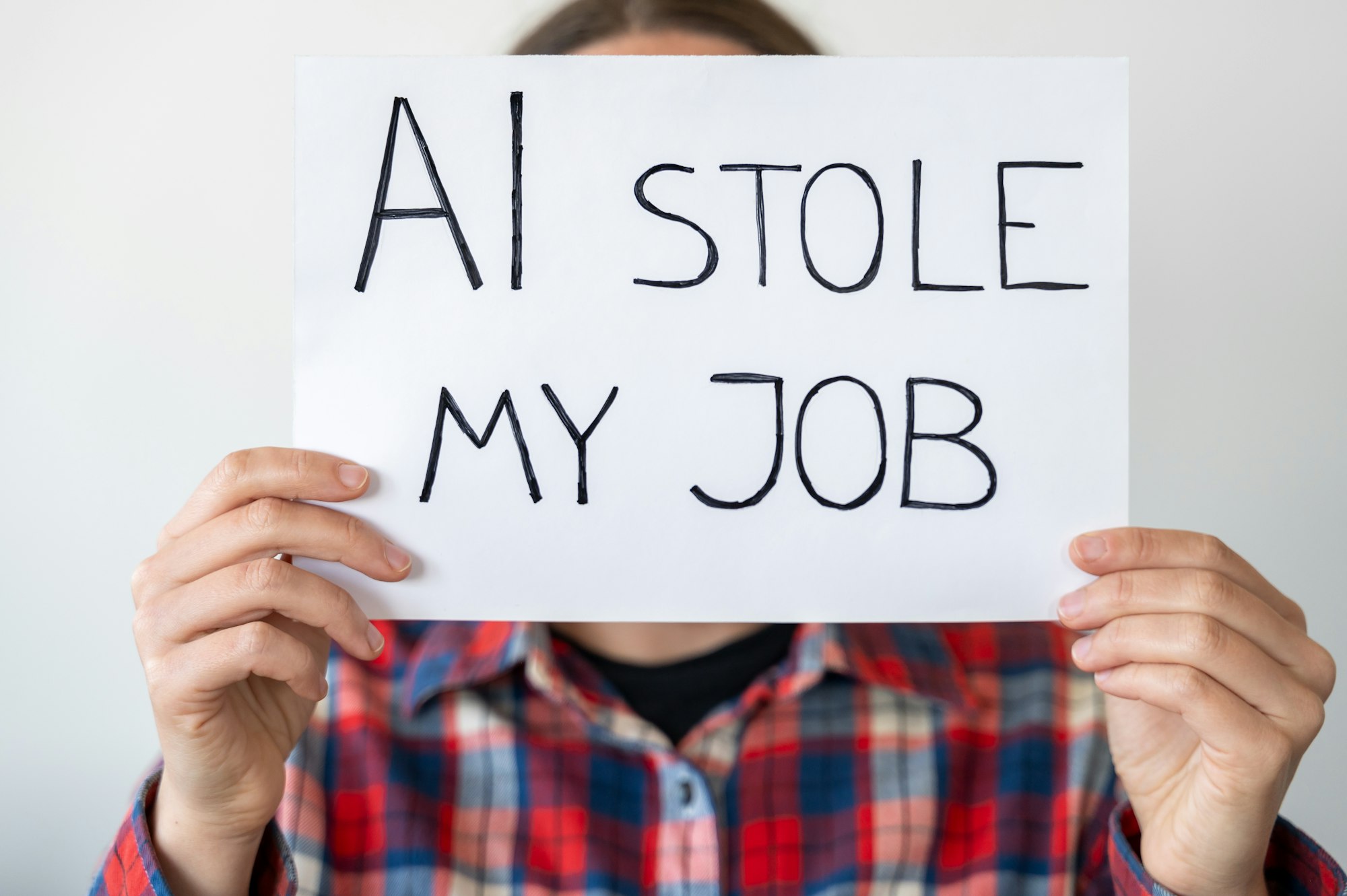AI and Jobs: What’s Going On?
How AI Might Change Who Works and Who Doesn’t
So, there’s a big shift happening in jobs all over the world because of artificial intelligence (AI). A survey talked to 2,000 big bosses (C-suite executives) from all over the place, and guess what? About 41% of them think they’ll hire fewer people because AI can do some jobs instead. This isn’t just happening in one or two places; it’s a big deal in 18 different industries.

AI Creating and Taking Away Jobs
AI, especially the kind that can make new stuff (like articles, art, etc.), is really shaking things up. It’s super cool because it can do things quicker and sometimes even come up with new ideas. But, it’s also making people worried about their jobs. Companies are trying to figure out how to use AI without causing too much trouble, like making sure people have the skills they need for new types of work.
What Companies Are Doing About It
Keeping People Around in New Roles
Even though AI might mean some jobs aren’t needed anymore, almost half of those big bosses prefer to move their workers to different jobs instead of letting them go. This way, companies can keep their people and help them learn to work with AI.
Looking for AI-Savvy People
Now, companies are really interested in hiring folks who know their way around AI. Two-thirds of the executives said this is what they’re doing. It seems like they’re more into bringing in new talent with the right skills rather than training the people they already have. This might change what you need to know to get certain jobs soon.
Different Views on AI and Jobs
Not Everyone Agrees on What AI Will Do to Jobs
This survey shows some bosses are worried about AI taking away jobs, but there’s another survey by the World Economic Forum (WEF) that’s more upbeat, saying AI could actually create more jobs. So, it looks like not everyone can agree on what’s going to happen.
Which Jobs Might Disappear
Some studies are saying up to 300 million jobs could be impacted by AI, especially the ones that need a lot of brain work (white-collar jobs). This is a big deal and means there’s a lot of thinking to do about how we’re going to deal with AI changing the job scene.
So, there you have it – a rundown on how AI is mixing things up in the world of work, from what the bosses are saying to what it all might mean for the future of jobs.

Frequently Asked Questions (FAQs) about AI and Job Changes
- Will AI really take away jobs?
Yes, AI is expected to change the need for certain jobs, especially those that can be automated. According to a survey of C-suite executives, 41% believe they’ll reduce their workforce because of AI. However, this doesn’t mean all jobs will disappear; some will evolve, and new ones will be created. - What kinds of jobs are most at risk because of AI?
Jobs that involve repetitive tasks or can be easily automated by AI, particularly in white-collar sectors, are most at risk. Economic studies suggest up to 300 million jobs could be impacted, with those requiring less human creativity or emotional intelligence facing the highest risk. - Are companies planning to lay off workers because of AI?
Not necessarily. While AI may lead to job displacement, nearly half of the executives surveyed prefer to redeploy employees within their organizations to new roles that work alongside AI technologies, rather than laying them off. - What are companies doing to prepare for the integration of AI?
Many companies are shifting their focus towards hiring individuals with AI expertise, with two-thirds of the surveyed executives prioritizing this approach. Additionally, some companies are exploring training programs to help current employees adapt to new roles that require working with AI. - Is there any positive outlook on AI and employment?
Yes, there are different perspectives. While some surveys, like the one mentioned, highlight concerns about job losses, others, like the World Economic Forum, are more optimistic, suggesting that AI could also create new job opportunities by driving technological advancements and requiring new skill sets. The impact of AI on employment will likely vary by industry, job type, and region.
Sources CNN


